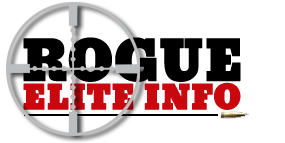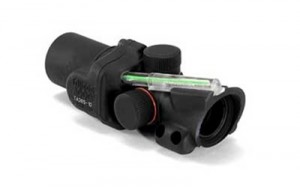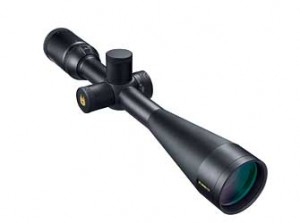Magnification and sending long distance phone calls
 Ok, that was a dumb thing to say, but I still chuckle at one of my buddies comments whenever we’re on the long range. Reaching out and touching someone at 600yds is precisely what a sniper does. I have learned to notice that clarity of rifle optics but one thing that is becoming more and more of an experience is looking through all of the optics out there and their reticles. A long time ago, people were more concerned with the durability of the optic and making sure it wasn’t going to fog up on them when they took the scope caps off in the early morning when they went out chasing whitetails. Now some of your least expensive rifle optics don’t fog up.
Ok, that was a dumb thing to say, but I still chuckle at one of my buddies comments whenever we’re on the long range. Reaching out and touching someone at 600yds is precisely what a sniper does. I have learned to notice that clarity of rifle optics but one thing that is becoming more and more of an experience is looking through all of the optics out there and their reticles. A long time ago, people were more concerned with the durability of the optic and making sure it wasn’t going to fog up on them when they took the scope caps off in the early morning when they went out chasing whitetails. Now some of your least expensive rifle optics don’t fog up.
I have a few Zeiss Conquest scopes that I’m quiet happy with, but I think I could go with less magnification on some of them. When you are trying to hit a 6ft target at 600yds, it’s really not that hard to see it. When people try and see an X on a 2ft piece of paper in their rifle scopes, that’s a whole other thing and in my opinion something not worth pursuing. I have walked off shooting ranges in the summer time because the mirage given off from the heat was so bad that it was completely impossible for me to even see a target at 100yds and testing my hand loaded ammunition would have been a waste.







 There is no need to trash people that are using inferior optics. Somtimes a $100 scope that holds zero is all that is needed and long range shooting isn’t a reality. Plenty of people get there kicks out of inexpensive optics and aren’t concerned about how bright their optics are or if they’ll hold up to thousands of rounds. Most optics that cost $200-$300 are probable all you need for most hunting, plinking purposes and some manufacturers make some great optics in that price range. There are levels of gear though and there is a certain point that you have to realize that your gear isn’t up to par.
There is no need to trash people that are using inferior optics. Somtimes a $100 scope that holds zero is all that is needed and long range shooting isn’t a reality. Plenty of people get there kicks out of inexpensive optics and aren’t concerned about how bright their optics are or if they’ll hold up to thousands of rounds. Most optics that cost $200-$300 are probable all you need for most hunting, plinking purposes and some manufacturers make some great optics in that price range. There are levels of gear though and there is a certain point that you have to realize that your gear isn’t up to par. It’s a decidedly American story: one century ago in 1907, a young German immigrant named Fred Leupold set up a one man shop at 5th and Oak Streets in Portland, Oregon, repairing optics for surveying equipment. Leupold & Stevens is still family owned, though our focus has turned from surveying to helping people all across the globe survey their environments with the innovative, high-performance sports optics and accessories.
It’s a decidedly American story: one century ago in 1907, a young German immigrant named Fred Leupold set up a one man shop at 5th and Oak Streets in Portland, Oregon, repairing optics for surveying equipment. Leupold & Stevens is still family owned, though our focus has turned from surveying to helping people all across the globe survey their environments with the innovative, high-performance sports optics and accessories.